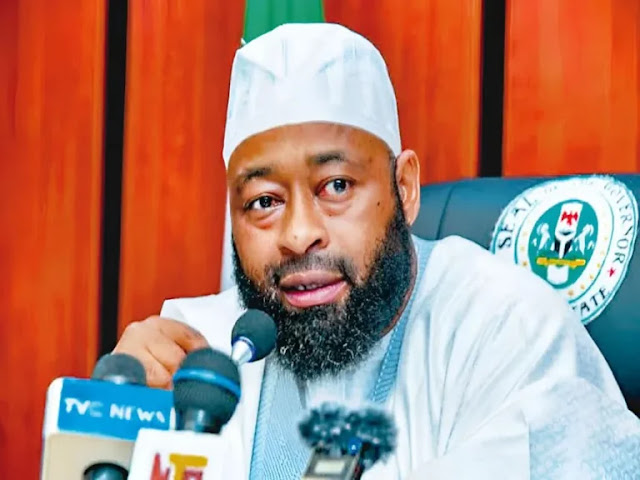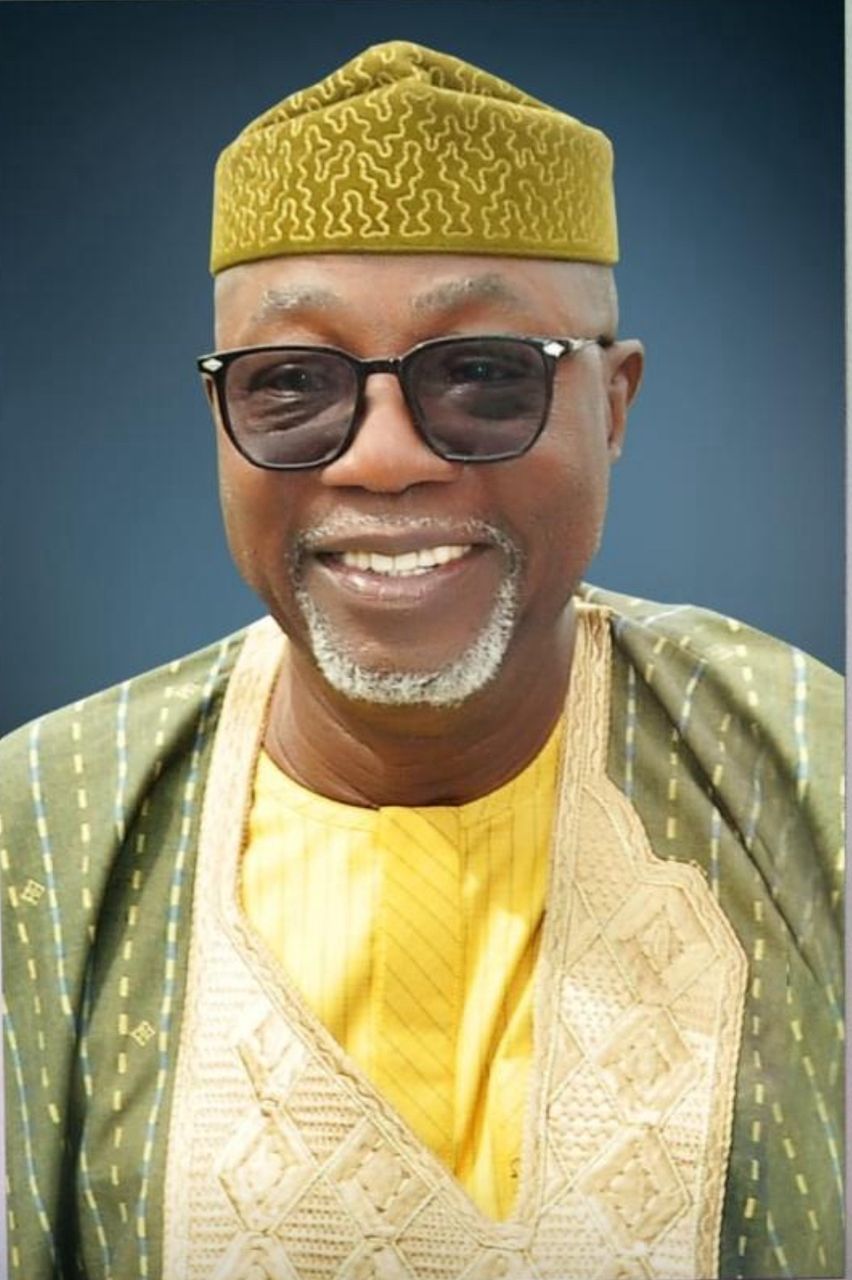On September 1, 2025, Niger State Governor Mohammed Umaru Bago announced the dissolution of the State Executive Council, a decision that has sent ripples through the political landscape of one of Nigeria’s largest states. The announcement, made in Minna, the state capital, included the retention of several key officials, signaling a strategic reshuffle aimed at repositioning the administration for the second half of Bago’s first term and potentially preparing for the 2027 elections. This move has sparked widespread discussion about the governor’s intentions, the performance of his administration, and the implications for governance and politics in Niger State. This article provides a comprehensive analysis of the cabinet dissolution, the retention of key officials, the context of Bago’s administration, and the broader implications for Niger State’s political and developmental trajectory.
The Announcement: Context and Details
Governor Mohammed Umaru Bago’s decision to dissolve the Niger State Executive Council was communicated through a statement by the Secretary to the State Government (SSG), Alhaji Abubakar Usman. The dissolution affected all commissioners, special advisers, and other political appointees, effectively bringing an end to the cabinet that had been in place since Bago assumed office on May 29, 2023. However, the governor chose to retain key officials, including the SSG, the Chief of Staff, and select permanent secretaries, ensuring continuity in critical administrative functions.
The statement from the SSG’s office expressed gratitude to the outgoing cabinet members for their contributions to the state’s development and urged them to continue supporting the administration’s agenda. While no official reason was provided for the dissolution, political analysts speculate that the move is part of a broader strategy to refresh the administration, address performance gaps, and align the government with Bago’s long-term vision for Niger State. The retention of key officials suggests a calculated approach, balancing the need for change with the preservation of institutional knowledge and stability.
The dissolution comes at a pivotal moment for Bago’s administration, which has been in power for just over two years. As the governor approaches the midpoint of his first term, the decision to overhaul the cabinet reflects a desire to strengthen his administration’s performance and consolidate political support ahead of future elections. The move also aligns with a common practice among Nigerian governors, who often reshuffle their cabinets to address emerging challenges, reward loyalists, or respond to public and political pressures.
Mohammed Umaru Bago: A Profile of the Governor
To understand the significance of the cabinet dissolution, it’s essential to examine Governor Bago’s background and leadership style. Mohammed Umaru Bago, born on February 22, 1974, in Minna, is a seasoned politician and businessman who rose to prominence as a member of the House of Representatives, representing the Chanchaga Federal Constituency from 2011 to 2023. During his time in the National Assembly, Bago served as the Chairman of the House Committee on Maritime Safety, Education, and Administration, earning a reputation for legislative competence and grassroots engagement.
Bago’s election as governor in 2023 under the All Progressives Congress (APC) marked a significant milestone in his political career. Campaigning on a platform of agricultural transformation, infrastructure development, and youth empowerment, Bago promised to leverage Niger State’s vast land resources and strategic location to drive economic growth. His administration’s agenda, branded as the “New Niger Agenda,” focuses on modernizing agriculture, improving education and healthcare, and enhancing security in a state that has faced challenges from banditry and communal conflicts.
Bago’s leadership style is characterized by ambition and pragmatism. He has sought to position Niger State as a hub for agribusiness, capitalizing on its fertile land and proximity to Abuja, the Federal Capital Territory. Projects like the establishment of agro-industrial parks, road construction, and investments in renewable energy have defined his tenure. However, like many Nigerian governors, Bago has faced criticism for uneven implementation and the slow pace of development in some areas, which may have contributed to the decision to dissolve the cabinet.
Reasons Behind the Cabinet Dissolution
While the official statement did not specify the reasons for the cabinet dissolution, several factors likely influenced Governor Bago’s decision. These include:
Performance Evaluation: Two years into his administration, Bago may have assessed the performance of his commissioners and found some wanting. The dissolution provides an opportunity to replace underperforming officials with fresh talent capable of delivering on his agenda. In Nigeria, cabinet reshuffles are often used to address inefficiencies and realign the government with its priorities.
Political Strategy for 2027: As the 2027 elections loom, Bago is likely positioning himself for a second term. The dissolution allows him to reward loyalists, accommodate new political allies, and strengthen his base within the APC. By retaining key officials like the SSG and Chief of Staff, Bago ensures continuity while signaling that the reshuffle is not a complete overhaul but a strategic recalibration.
Response to Public Sentiment: Niger State, like many parts of Nigeria, faces significant socio-economic challenges, including unemployment, insecurity, and inadequate infrastructure. Public dissatisfaction with the pace of development may have prompted Bago to reshuffle his cabinet to demonstrate responsiveness and inject new energy into his administration.
Internal Party Dynamics: The APC in Niger State is a complex ecosystem of competing interests, with various factions vying for influence. The dissolution could be an attempt to balance these interests, placate aggrieved party members, or consolidate power ahead of future primaries. Bago’s decision to retain key officials suggests a desire to maintain stability while addressing internal pressures.
Alignment with the New Niger Agenda: Bago’s “New Niger Agenda” is an ambitious blueprint that requires a cohesive and competent team to implement. The dissolution may reflect a need to align the cabinet with the administration’s long-term goals, particularly in areas like agriculture, education, and security.
The Retention of Key Officials
The decision to retain certain officials, including the SSG, Chief of Staff, and select permanent secretaries, is a critical aspect of the reshuffle. These officials play pivotal roles in the administration’s day-to-day operations and policy implementation. Their retention suggests that Bago values their contributions and trusts them to maintain continuity during the transition.
Secretary to the State Government (Alhaji Abubakar Usman): As the SSG, Usman is responsible for coordinating government activities, managing cabinet affairs, and serving as a liaison between the governor and other stakeholders. His retention ensures that the administrative machinery remains intact, minimizing disruptions during the reshuffle.
Chief of Staff: The Chief of Staff oversees the governor’s office, manages political appointments, and serves as a key adviser. Retaining this official signals Bago’s confidence in their ability to navigate the complex political landscape of Niger State.
Permanent Secretaries: Permanent secretaries are career civil servants who provide institutional memory and technical expertise. Their retention ensures that critical government functions, such as budgeting and project implementation, continue seamlessly.
By retaining these officials, Bago strikes a balance between change and stability, ensuring that the administration remains functional while new appointees are integrated.
Implications for Niger State’s Governance
The dissolution of the cabinet has far-reaching implications for governance in Niger State. Below are some of the key areas affected:
Policy Implementation: The reshuffle could lead to a renewed focus on key policy areas, such as agriculture and infrastructure. New commissioners may bring fresh perspectives and energy, potentially accelerating the implementation of the “New Niger Agenda.” However, the transition period could cause delays as new appointees settle into their roles.
Political Dynamics: The dissolution is likely to reshape political alliances within Niger State. New appointments will reflect Bago’s priorities and could reward loyalists or accommodate rival factions within the APC. The move also sends a message to political stakeholders that Bago is in control and willing to make bold decisions.
Public Perception: The reshuffle is an opportunity for Bago to address public concerns about his administration’s performance. By appointing competent and dynamic individuals, he can boost public confidence and demonstrate a commitment to delivering results. However, the success of the reshuffle will depend on the quality of the new appointees and their ability to deliver tangible outcomes.
Security and Development: Niger State has faced significant security challenges, including banditry and kidnapping, particularly in areas like Shiroro, Rafi, and Munya. The new cabinet will need to prioritize security, working closely with federal agencies and local communities to address these issues. Similarly, the state’s development agenda, particularly in agriculture and education, will require focused leadership to achieve meaningful progress.
The Broader Nigerian Context
The dissolution of the Niger State cabinet must be viewed within the broader context of Nigerian politics and governance. Cabinet reshuffles are a common feature of Nigerian state administrations, often driven by political, economic, and social considerations. Governors frequently use reshuffles to address performance issues, reward loyalty, or respond to public pressure. However, the effectiveness of these reshuffles varies, with some leading to significant improvements and others serving as mere political maneuvers.
Niger State’s challenges are emblematic of those faced by many Nigerian states. With a population of over 7 million and vast land resources, the state has immense potential but struggles with poverty, unemployment, and insecurity. The federal government’s limited resources and Nigeria’s centralized fiscal system place significant pressure on state governments to deliver services and drive development. Bago’s reshuffle reflects an attempt to navigate these challenges while positioning himself as a strong leader within the APC.
The timing of the dissolution, just over two years into Bago’s term, also aligns with the political calendar. As the 2027 elections approach, governors across Nigeria are beginning to strategize for re-election or higher office. Bago’s move could be a preemptive step to strengthen his administration and build a coalition capable of securing a second term or supporting his broader political ambitions.
Stakeholder Reactions and Public Discourse
The announcement of the cabinet dissolution has elicited varied reactions from stakeholders in Niger State. Political analysts have described the move as a strategic necessity, given the state’s challenges and the need to maintain momentum. Some have praised Bago for taking decisive action, while others caution that the success of the reshuffle will depend on the quality of the new appointees.
On platforms like X, residents of Niger State have expressed a mix of optimism and skepticism. Some commend Bago for shaking up his administration, hoping that new commissioners will bring fresh ideas and address pressing issues like insecurity and unemployment. Others question the timing of the dissolution, arguing that it could disrupt ongoing projects and create uncertainty.
APC leaders in Niger State have largely supported the move, viewing it as an opportunity to strengthen the party’s position. However, opposition parties, including the Peoples Democratic Party (PDP), have criticized the reshuffle as a distraction from the administration’s shortcomings. The PDP’s state chapter issued a statement calling for greater accountability and transparency in the selection of new appointees.
The retention of key officials like the SSG and Chief of Staff has been seen as a stabilizing factor. Analysts suggest that these officials will play a critical role in ensuring a smooth transition and maintaining the administration’s focus on its core priorities.
Potential Challenges and Opportunities
While the cabinet dissolution presents opportunities for renewal, it also poses challenges that Bago must navigate:
Selection of New Appointees: The success of the reshuffle hinges on the quality of the new commissioners and advisers. Bago must balance competence with political considerations, ensuring that appointees are capable of delivering results while representing diverse interests within the state.
Managing Political Fallout: The dissolution may alienate some former cabinet members and their supporters, potentially creating tensions within the APC. Bago will need to manage these dynamics carefully to maintain party unity.
Public Expectations: The reshuffle has raised expectations among Niger State residents, who are eager for tangible improvements in governance. Failure to deliver could erode public trust and weaken Bago’s re-election prospects.
Continuity of Projects: The retention of key officials mitigates the risk of disruption, but the departure of commissioners could stall ongoing projects. Bago’s administration must ensure that critical initiatives, such as agricultural reforms and infrastructure development, remain on track.
On the opportunity side, the reshuffle allows Bago to inject new energy into his administration, address public concerns, and strengthen his political base. By appointing dynamic and competent individuals, he can enhance his administration’s credibility and position Niger State as a model for development.
The Road to 2027: Bago’s Political Strategy
The dissolution of the cabinet is a clear signal that Bago is thinking strategically about his political future. As a first-term governor, he faces the challenge of delivering on his campaign promises while building a coalition for re-election in 2027. The reshuffle allows him to reward loyalists, accommodate new allies, and address criticisms about his administration’s performance.
Bago’s focus on agriculture, infrastructure, and security aligns with Nigeria’s broader developmental priorities, particularly in the context of economic diversification and food security. By positioning Niger State as a hub for agribusiness, Bago can appeal to both local and national audiences, potentially elevating his profile within the APC. His retention of key officials suggests a pragmatic approach, ensuring that his administration remains functional while he navigates the political landscape.
The reshuffle also positions Bago to respond to emerging challenges, such as insecurity and economic hardship. By appointing commissioners with expertise in these areas, he can strengthen his administration’s capacity to deliver results, bolstering his case for re-election.
Conclusion
Governor Mohammed Umaru Bago’s decision to dissolve the Niger State Executive Council, while retaining key officials, is a strategic move that reflects both the challenges and opportunities facing his administration. Coming at the midpoint of his first term, the reshuffle is an attempt to address performance gaps, align the government with the “New Niger Agenda,” and position Bago for future political success. The retention of officials like the SSG and Chief of Staff ensures continuity, while the dissolution opens the door for new talent and fresh perspectives.
The implications of this move extend beyond Niger State, offering insights into the dynamics of Nigerian state politics. As Bago navigates the complexities of governance, party dynamics, and public expectations, the success of the reshuffle will depend on his ability to appoint competent leaders, maintain political stability, and deliver tangible results. With the 2027 elections on the horizon, this cabinet dissolution marks a critical juncture in Bago’s tenure, one that could define his legacy and shape the future of Niger State.









